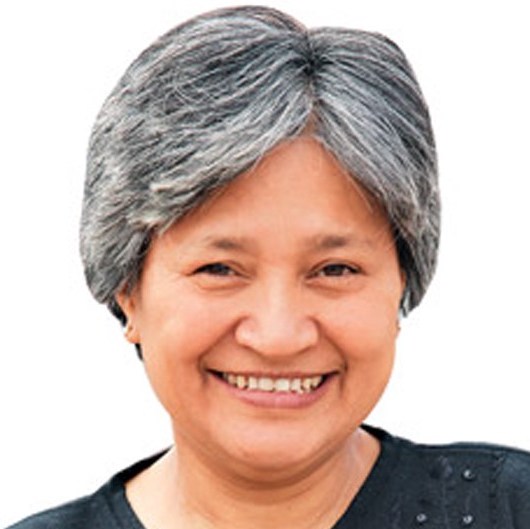Opinion
Local elections: whose roadmap?
Recent developments show that the status quo in the form of old political parties still dominates Nepal’s political milieu
Hisila Yami
I was observing how the rightist conservative movement has been sweeping across the world, be it in the UK or in the USA (where globalisation was once heralded as a panacea for the world’s problems). In South Asia, the movement has already made its presence felt in India. In Nepal too, it is coming, but in a different form. Here it has come not from the rightist parties, but from the so-called communist parties. They are pursuing a rightist agenda, which is anti-inclusion and anti-federalism. They are projecting themselves as strong nationalist forces.
New political parties have come up in Nepal to address novel political agendas present in the current constitution. However, their participation in the upcoming local elections under their respective party’s election symbol has been denied on the grounds of the Local Election Act, Sub-article 6 of Article 26. In short, they would have to fight in the coming elections as independent candidates. The Local Election Act has a provision allowing only those parties present in the existing Parliament to participate in the local elections with their party symbols.
Election symbols
This is against the spirit of fundamental rights and responsibilities as enshrined in the constitution, which provides the “freedom of right to open political parties”. It is obvious from this provision that parties have a right to make a claim for the election symbols given to them. As far as managing a growing number of political parties goes, the provision of a 3 percent threshold and the need to secure at least one seat through the first-past-the-post system in order for parties to be recognised as national parties has already been endorsed.
What makes this mistake graver is that the country is adopting federalism based on the principles of identity and capability. But the government is not recognising the identity of the political parties outside of the current Parliament. At this hour, when all the new political agendas—be they republicanism, federalism, secularism or inclusion—need to be institutionalised and implemented, the state is shunning new parties such as Naya Shakti Nepal, Bibeksheel Party, Sajha Party, etc. This means the status quo in the form of the old political parties is still dominating Nepal’s political milieu. This also means that it is the royal ‘Kamal roadmap’ that is firing shots from the shoulder of the so-called Maoist ‘Pushpa-Kamal roadmap’.
At present, the Samyukta Loktantrik Madhesi Morcha consisting of seven political parties is asking the government to withdraw the upcoming local elections. The Morcha is angry that the government has not addressed the issue of inclusion and has serious reservations about the delineation of boundaries of the reorganised local units. The present local units have been created on the basis a re-arrangement of old boundaries, which had been dividing the oppressed ethnic communities.
Twice in custody
Before the passage of the Local Election Act, the coordinator of Naya Shakti Nepal, Baburam Bhattarai, had met Prime Minister Pushpa Kamal Dahal to address the long-promised Madhesi demand of amending the constitution. Little did Bhattarai realise that his own party would fall victim to the state’s exclusionary policy. It is ironic that the same Prachanda (now known as Pushpa Kamal Dahal) who headed the People’s War imprisoned Bhattarai and me during the war, and once again in the capacity of the prime minister on April 2, 2017.
Coincidentally, on both occasions we were imprisoned because we dared to raise questions on issues related to the deepening of democracy. During the People’s War, we were imprisoned because we fought against monolithic tendencies within the party. Recently, we were remanded in custody because we fought against the “syndicate” of the three parties—the Nepali Congress, the CPN-UML and the Maoist Centre. This is against the spirit of the preamble of the constitution “upholding people’s competitive multiparty democratic state system”.
Already 68 political parties outside the current Parliament have formed an alliance to struggle for their political identity. And this number is increasing. Women are also angry about the fact that they have not received what they were promised in the constitution. The promise of one post out of the two mayor and deputy-mayor posts, and two seats at the ward level is being sabotaged in the present Act. Women are also angry that the Ministry of Women and Social Welfare is being scrapped.
While this is one side of the story, another side is the growing intolerance of the current government. The alliance of 68 political parties delivered an ultimatum to the prime minister demanding that their democratic rights be addressed within 48 hours. However, when this was not heeded, the alliance decided to stage a dharna in front of the central election commission with the intention of stopping the commission’s work. While entering a restricted zone, we were taken into police custody.
The last time I was placed in police custody was in 1995. I was surprised that changes had occurred since then. Even under the present federal republic democratic constitution, the same old feudal punitive actions are still prevalent.
All of us, including former prime minister Baburam Bhattarai, underwent the same beastly treatment and physical torture as before. We were literally forced out of police custody even though we demanded that the law take its own course and that we be allowed hearings before the court. All this shows that the monolithic tendency developing within the state structure will not allow healthy competition in the economic field, thus pushing Nepal further towards darkness.
Yami, a former Cabinet minister, is associated with Naya Shakti Nepal




 11.78°C Kathmandu
11.78°C Kathmandu











